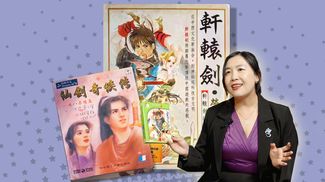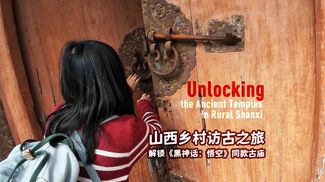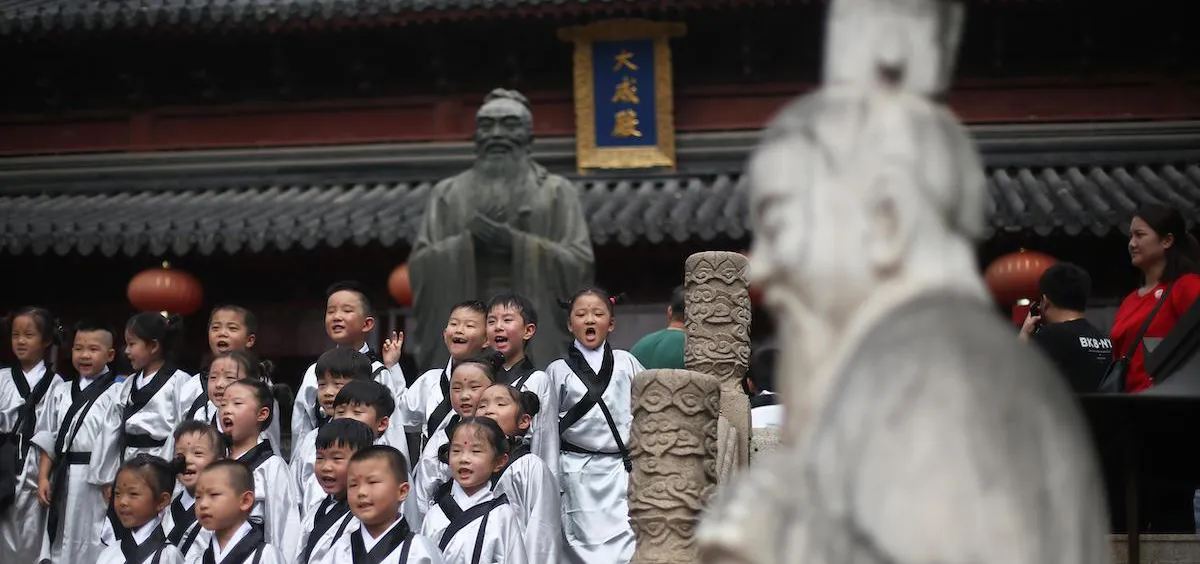Chengyu used to honor teachers during the Teachers’ Day.
“Teachers are those who can propagate the doctrine, impart professional knowledge, and resolve doubt,” Han Yu (韩愈), an outstanding poet who lived during the seventh and eighth century, wrote in his essay On Teaching.
Teachers undoubtedly play an important role in the development of students, motivating, inspiring, and imparting wisdom. Each September 10, China celebrates Teacher’s Day, when students send flowers and gifts to their teachers in gratitude for their guidance.
Teachers may range from strict to lax (though it seems Chinese public school teachers all have a few classic lines they like to recite). Regardless of their classroom manner, though, China has had a long tradition of respecting and honoring educators ever since the most famous teacher of all, Confucius. In honor of these lifelong mentors, let’s look at a few chengyu that describe teachers of all kinds—the good, the bad, and the especially memorable:
因材施教 Teach students in accordance with their aptitudes
This phrase was coined by Confucius to indicate that teachers need to change their teaching methods to suits students with varying abilities. The chengyu is now used to suggest targeted instruction for certain individuals.
The true way of teaching is to discover the unique features of each student and teach them accordingly.
Zhēnzhèng de jiàoxué zhī dào shì yào shànyú fāxiàn xuéshēng de dútè zhī chù bìng yīncáishījiào.
真正的教学之道是要善于发现学生的独特之处并因材施教。
春风化雨 Spring breeze nurturing rain
Effective instruction doesn’t just entail a loud voice or harsh discipline. A gradual, gentle, and even-handed approach can build rapport between teacher and student, and make instruction fun. This idiom comes from a saying by Mencius, which goes, “There are five types of teaching by noble men: that which is like the nourishment of timely rain; that which nurtures moral virtues; that which helps to develop talent; that which answers questions; and that which privately cultivates and corrects others.” The phrase is now usually a compliment to gentle and kind teachers who have had a lifelong influence on a student:
Good education should be like the spring breeze that nurtures rain, instead of forcing students to change.
Hǎo de jiàoyù yīnggāi rú chūnfēnghuàyǔ, ér bùshì qiǎngpò xuéshēng qù gǎibiàn.
好的教育应该如春风化雨,而不是强迫学生去改变。
耳提面命 Pulling one’s ear to give advice
Originating from The Book of Songs, “[I] not only have a face to face interaction, but drag the other’s ear to exhort them (匪面命之,言提其耳),” this phrase describes those who give earnest and sincere advice.
Mr. Zhang gave sincere advice, yet she treated it as nothing important and didn’t listen at all!
Zhāng lǎoshī de ěrtímiànmìng, tā jūrán dàngchéng ěrbiānfēng, yīdìng yě bù shàng xīn!
张老师的耳提面命,她居然当成耳边风,一定也不上心!
误人子弟 Mislead students
In Flowers in the Mirror (《镜花缘》), a novel written in 1827, author Li Ruzhen (李汝珍) criticized incompetent teachers by asking: “If teachers ought to be caned for a small error, shouldn’t teachers who do not fulfill their duties and mislead their students be killed?” The idiom since then has been used to censure unfit teachers or schools.
If teachers do not instill correct moral concepts into students, they will lead their students astray.
Lǎoshī rúguǒ bù xiàng xuéshēng guànshū zhèngquè de dàodé guānniàn, jiù huì wù rén zǐdì.
老师如果不向学生灌输正确的道德观念,就会误人子弟。
程门立雪 Stand in snow at the gate of Cheng’s home
This idiom, referring to students waiting for their teacher in the snow, came from either the Quotation of Cheng Brothers (《二程语录》) or the History of the Song dynasty 《宋史》, which both record the same story: In the Northern Song dynasty (960 – 1127), Yang Shi and You Zuo went to visit the renowned scholar Cheng Yi to seek knowledge. Cheng was taking a nap inside his home. The two men did not want to disturb Cheng, so they waited in the heavy snowfall. When Cheng woke up, he was so deeply moved by the scene that he gave Yang and You detailed instructions on the subjects they were seeking. Later, Yang also became a renowned scholar. The chengyu that derives from this story thus urges students to treat their teachers with deep respect.
If you want him to teach you, you must move him with a show of your deep reverence.
Yào xiǎng bàishī xué yì, jiù yào yòng chéng mén lì xuě de jīngshén dǎdòng tā.
要想拜师学艺,就要用程门立雪的精神打动他。
桃李满门 Peaches and plums are everywhere; a plethora of students
The idiom metaphorically describes a teacher who boasts a large number of students. It first appeared in the Zizhi Tongjian or Comprehensive Mirror for Aid in Government (《资治通鉴》), a chronicle covering Chinese history from 403 BC to 959 CE by Sima Guang (司马光), which states, “Talents across the nation were cultivated by you (天下桃李,悉在公门矣).” This description praises Di Renjie (狄仁杰), an official who had recommended numerous talented individuals to serve in government and had a reputation for mentoring brilliant students.
After teaching for more than 30 years, Mr. Li must have a great number of students.
Lǐ lǎoshī cóngjiào sānshí yú nián, kěwèi shì táolǐ mǎnmén.
李老师从教三十余年,可谓是桃李满门。
Cover image from VCG












